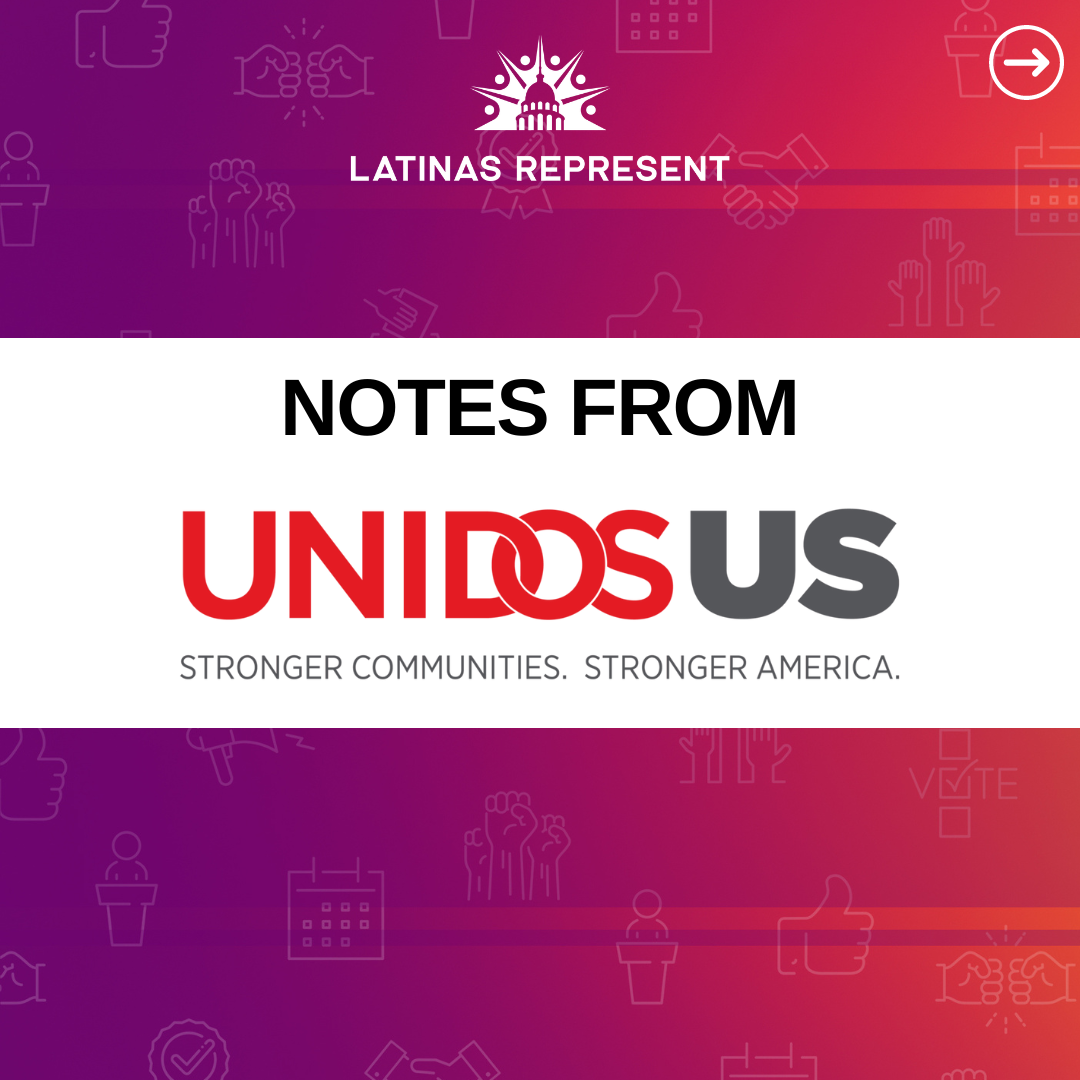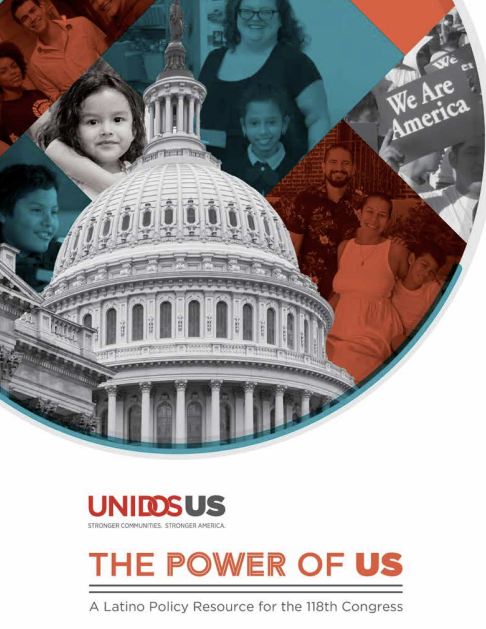

“The Power of Us: A Latino Policy Resource for the 118th Congress” is a resource for policymakers and advocates to better understand the critical policies that, if enacted, would meaningfully improve the lives of our nation’s 62 million Latinos. It serves as a critical reference tool for those who aim to become familiar with UnidosUS policy experts and their expertise, Latino-centered policy research, and legislation that would advance equity and inclusion for the Hispanic community. Reading the publication, you learn culturally relevant programs that UnidosUS works on with its nearly 300 Affiliates across the country, including the Esperanza Hope For All campaign that has helped millions of Latinos get vaccinated, and collaborative efforts that helped lift 1.4 million Latino children out of poverty through the expanded fully refundable Child Tax Credit in 2021.
The resource describes UnidosUS’s advocacy in key states where the Latino population is high and growing, including Arizona, California, Florida, and Texas. These states are focal points for the Latino community and can be incubators for innovative policy and program solutions. It also highlights victories in voter engagement, including registering nearly one million Hispanic voters, including more than 42,000 in the recent midterm elections. In addition, it includes recent public opinion research on Latino voter perspectives, including a midterms national poll, eight state-based polls, and an election eve poll, which have informed the media and policymakers about our community’s priorities.
Finally, the resource highlights the policy work led by UnidosUS teams of experts across critical areas: economic empowerment, civil rights, education, health, immigration, and housing. Throughout this document, you will find links to UnidosUS’s latest publications, analyses, and blogs, which provide many of the policy solutions that will be needed to improve the lives and prospects of Latino workers, families, and their children.
About UnidosUS
UnidosUS is a nonprofit, nonpartisan organization that serves as the nation’s largest Hispanic civil rights and advocacy organization. Since 1968, we have challenged the social, economic, and political barriers that affect Latinos through our unique combination of expert research, advocacy, programs, and an Affiliate Network of nearly 300 community-based organizations across the United States and Puerto Rico. We believe in an America where economic, political, and social progress is a reality for all Latinos, and we collaborate across communities to achieve it.
The UnidosUS Policy and Advocacy component is a leading think tank focusing on issues relevant to the Latino community. Through research, policy analysis, advocacy efforts, civic engagement, and campaigns, it defines a rigorous policy agenda that includes stances on immigration, education, health, employment and the economy, and housing. This component aligns federal work with state-level advocacy and provides support and expertise to state and local leaders in implementing Latino-focused policy.
We aim to track Latina elected officials at all levels of government. If you are a current elected official who identifies as Latina and are not currently listed on our map, please submit your information below. Your submission will be reviewed prior to being added to the map.
Source: National Hispanic Leadership Agenda
The word Hispanic is closely tied to the U.S. government and its efforts to identify groups of people, which defines it as “Americans of Spanish origin or descent.” Under this definition, Hispanic only refers to people who are originally from Spanish-speaking countries. This term includes people from Spain but excludes people from Brazil. Although this term is widely used to describe a pan-ethnic Spanish-speaking group of people, it is not universally embraced by the communities who have been labeled as such. Due to its connection to Spanish colonization, some view the term Hispanic as a Eurocentric label that erases the Indigenous and Afro-Latino heritage of people from Latin America.
The terms Latino, Latina, Latin@, Latine, and Latinx refer to a person or group of people of Latin American or Caribbean origin or descent; this includes people from all countries in Latin America and the Caribbean but excludes Spain. When used in the singular form, Latino refers specifically to a man or boy, which is why it is necessary to use the term Latina when referring to women or girls of Latin American origin. The term “Latino” applies to a broader group of people in Spanish because the language is gendered and the masculine forms of words may also be considered gender-neutral, which means that the language itself sets a baseline that is both heterosexual and masculine and by default exclusionary. The term “Latinx” arose out of a desire to have a gender-neutral term and is used to refer to people of Latin American or Caribbean origins and is inclusive of those who identify along a gender spectrum and diverse sexual orientations and gender identities. Latinx term began appearing on the Internet in queer communities in the United States; however, it is not always considered the perfect response to the search for a postcolonial word because it requires an understanding of the English language and tends to highlight people of mestizo identity while erasing Indigenous and Afro-Latino identities. Some also have used the term “Latin@” to be inclusive, using the @ symbol to represent both an O and an A. More recently, “Latine” has emerged as an alternative to Latinx as a gender-neutral term rooted in the Spanish language. It is starting to be used in some parts of Latin America and the Caribbean and is also starting to gain some recognition in the United States.
ngshgjhrjhtrhthhewthejhfjthejhjhtjhewthewthw